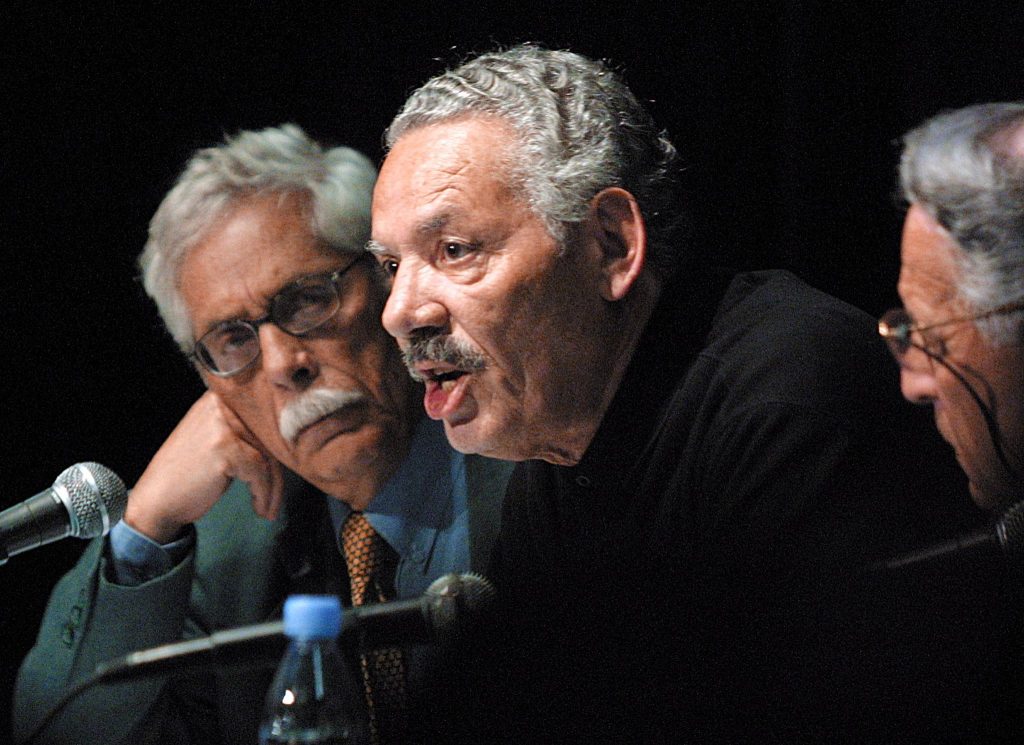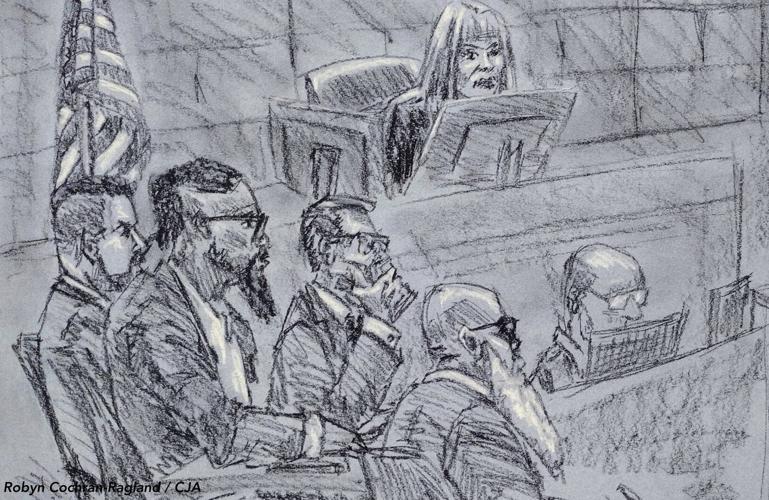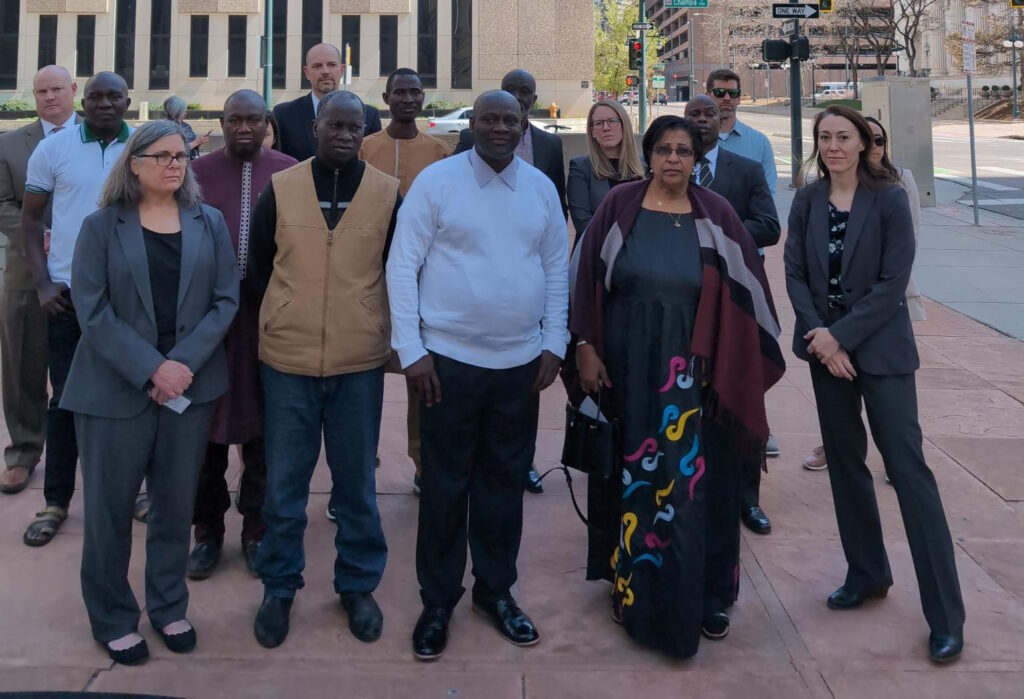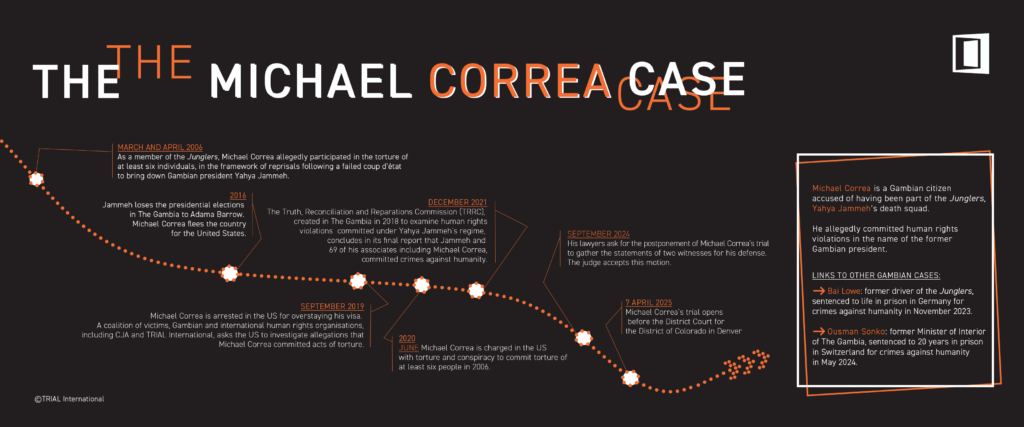Enforced disappearance of Salih Čekić in June 1992
In December 2009, TRIAL submitted a communication to the Human Rights Committee concerning the enforced disappearance of Salih Čekić which occurred in June 1992, acting on behalf of Ema Čekić, Sanela Bašić, Sead Čekić and Samir Čekić who are respectively the wife, the daughter and the sons of Salih Čekić.
On 4 May 1992 Salih Čekić was arrested in Svrake (Bosnia and Herzegovina, hereafter: BiH) by the Serb army together with Ema Čekić and their children Sanela Bašić (then 16 years old), Sead Čekić (then 15 years old) and Samir Čekić (then 13 years old) and most of the inhabitants of the same village. They were all taken to the concentration camp known as Kasarna JNA in Semizovac. A few days later, Ema Čekić, together with her children Sanela Bašić, Sead Čekić and Samir Čekić and other women and children, were freed. Salih Čekić was kept prisoner and transferred to different concentration camps, where he was subjected to torture and forced labour. Salih Čekić was last seen on 16 June 1992 in the concentration camp known asPlanjina kuca, located in the municipality of Vogošća. His fate and whereabouts remain unknown since then.
More than 17 years after the events, no ex officio, prompt, impartial, thorough and independent investigation has been undertaken by BiH authorities in order to locate Salih Čekić or his mortal remains or to identify, prosecute and sanction those responsible. Ema Čekić, Sanela Bašić, Sead Čekić and Samir Čekić have taken numerous steps to obtain information about their loved one, through the police of Visoko and Vogošća, the State Commission for Tracing Missing Persons, the Sarajevo Cantonal Prosecutor’s Office, and the Red Cross Society of BiH. To date, these initiatives have proved vain. Ema Čekić is the President of the Association of Families of Missing People from Vogošća while her children are active members of the same organization.
On 23 February 2006, the Constitutional Court of BiH, seized by several families of victims of enforced disappearance from Vogošća, declared that BiH had violated the right of the relatives of disappeared persons not to be subjected to torture and inhuman and degrading treatment as well as their right to respect for their private and family life. Accordingly, the Court ordered the relevant domestic institutions to disclose all available information on the fate and whereabouts of the disappeared people, including Salih Čekić. On 16 November 2006, the Constitutional Court adopted another ruling, whereby it declared that the Council of Ministers of BiH, the government of the Republika Srpska, the government of the Federation of BiH and the government of the Brčko District of BiH had failed to enforce its previous decision. Nevertheless, Ema Čekić, Sanela Bašić, Sead Čekić and Samir Čekić have not still received any information about their loved one from the mentioned institutions.
Consequently, Ema Čekić, Sanela Bašić, Sead Čekić and Samir Čekić request the United Nations Human Rights Committee:
to find that Salih Čekić is a victim of a violation of Article 2.3 (right to a remedy) in conjunction with Articles 6 (right to life), 7 (prohibition of torture and inhuman and degrading treatment), 9 (right to liberty and security of person), 10 (right to be treated with humanity and with respect for the inherent dignity of the human person) and 16 (right to be recognized as a person before the law) of the International Covenant on Civil and Political Rights, due to the ongoing failure of BiH authorities to conduct anex officio, prompt, impartial, independent and thorough investigation on his arbitrary detention, ill-treatment and enforced disappearance, in order to establish his fate and whereabouts, as well as to identify those responsible for these crimes and to prosecute, judge and sanction them;
to find that Ema Čekić and her children Sanela, Sead and Samir are victims of a violation by BiH of Article 2.3 (right to a remedy) in conjunction with Article 7 (prohibition of torture and inhuman and degrading treatment) of the Covenant, because of the severe mental distress and anguish caused by the enforced disappearance of Mr. Salih Čekić and the ongoing lack of information about the cause and circumstances of their loved one’s disappearance as well as on the progress and results of the investigations carried out by BiH authorities; and that, in the case of Samir Čekić, until 17 August 1996, the mentioned provisions were violated in conjunction with Article 24.1 of the Covenant, as he was a minor (for their part, Sanela Bašić and Sead Čekić were minors when their father was subjected to enforced disappearance, but they attained the majority before BiH ratified the First Optional Protocol to the International Covenant on Civil and Political Rights, this explaining why a violation of Article 24.1 of the Covenant is not alleged in respect to them);
to request BiH to order independent investigations as a matter of urgency with a view to locate Salih Čekić and, if necessary, to exhume, identify, respect and return his mortal remains;
to request BiH to bring the perpetrators of the arbitrary arrest, ill-treatment and enforced disappearance of Salih Čekić before the competent civil authorities for prosecution, judgment and sanction without any further delay; and
to request BiH to ensure that Ema Čekić, Sanela Bašić, Sead Čekić and Samir Čekić obtain integral reparation and prompt, fair and adequate compensation for the harm suffered.
The General Context
According to sources, it is estimated that between 100,000 and 200,000 persons died as a consequence of the conflict (1992-1995) in BiH and that between 25,000 and 30,000 were victims of enforced disappearance. Approximately 13,000 people remain disappeared to date.
The case of Salih Čekić occurred in the context of a first wave of enforced disappearances and “ethnic cleansing” operations perpetrated by the Serb army in the spring and summer of 1992.
Notwithstanding the existence of strong evidence about the identity of those responsible for the enforced disappearance of Mr. Salih Čekić and eye-witnesses of the events, to date no one has been convicted, prosecuted and sanctioned for the alleged crimes, thus fostering an overall climate of impunity. Up to this day, the families of men disappeared in Vogošća have not received any information on the fate and whereabouts of their loved ones.
The decision
In March 2013, the Human Rights Committee communicated its decision (called “views” in the UN language). The Committee held that Bosnia-Herzegovina violated Article 2.3 in conjunction with Article 6, 7 and 9 of the International Covenant on Civil and Political Rights with regards to the authors and their disappeared relative. The Committee also found a violation of Article 24 of the Covenant with regard to Samir Čekić.
The Committee requested Bosnia-Herzegovina to continue the efforts to establish the fate and whereabouts of Salih Čekić as required by the Missing Persons Act of 2004, to continue the efforts to bring to justice those responsible for his disappearance and to do so by 2015, as required by the National War Crimes Strategy, to abolish the obligation for family members to declare their missing relatives dead to benefit from social allowances and to ensure adequate compensation.
Moreover, the Committee insisted on Bosnia-Herzegovina’s obligation to prevent similar violations in the future and to ensure that investigations into allegations of enforced disappearances be accessible to the missing persons’ families.








